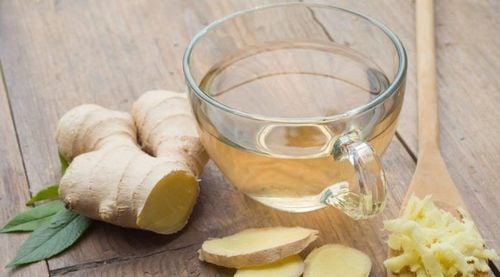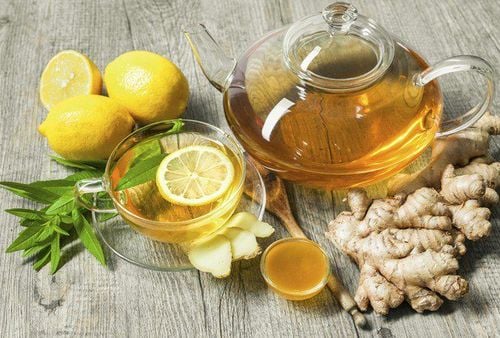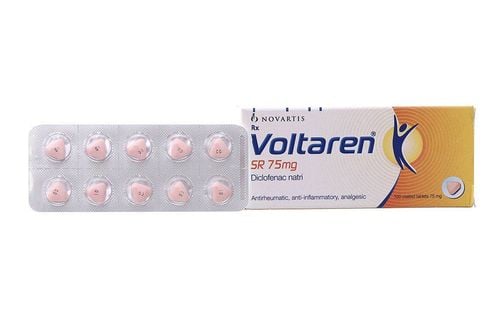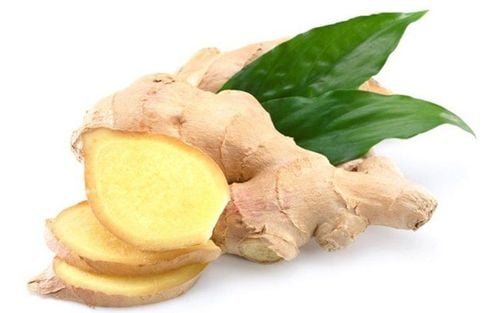The most notable active compounds in ginger are gingerols and shogaols. Research shows that these compounds have anti-inflammatory properties that may help control or reduce the risk of many conditions, including sore throat. So, does drinking ginger water really help with a cough? Read more to find out.
1. The Role of Ginger Water for Health
Ginger contains active compounds called bioactive substances that can provide health benefits. These bioactive compounds are plant-based nutrients found in certain foods, and research suggests they have anti-inflammatory effects. They may help control or lower the risk of many health problems, including coughing and sore throat. Ginger is also thought to have antibacterial qualities that may help fight infections (bacterial or viral), including those that cause a sore throat.
In one laboratory study, a 10% ginger extract solution was found to inhibit the growth of Streptococcus mutans, Candida albicans, and Enterococcus faecalis. These microorganisms often cause mouth infections. However, more research is needed to see how ginger affects the specific bacteria and viruses known to cause coughing and sore throat. Finally, ginger has antioxidant properties. Antioxidants can offer protective and healing benefits against illnesses. One study found that fresh ginger provides more antioxidant benefits than dried ginger.
2. Does Ginger Water Effectively Relieve Cough?
2.1. Ginger Water’s Anti-Inflammatory Effects
You cough when your throat or airways are inflamed. This inflammation may come from your body’s immune response to an infection or from irritants, such as postnasal drip.
Ginger’s anti-inflammatory properties may help reduce coughing or sore throat by easing this inflammation. Research suggests that ginger can do this by blocking certain proteins in the body that cause inflammation. These proteins can cause pain, itching, and burning in the throat.
Other studies have shown that ginger, when combined with certain herbs, helps reduce tonsillitis symptoms and sore throat, and can help relieve cough. In one study, 7 out of 10 people with chronic tonsillitis experienced a reduction in acute tonsillitis symptoms. Another study done in test tubes also showed promising results.
2.2. Ginger Boosts the Immune System
Ginger may soothe your cough, sore throat, and improve recovery time because the compounds in ginger can strengthen the immune system.
Most coughs and sore throats are caused by viruses, such as the common cold, flu, or mononucleosis. Cold medicines cannot kill viruses, but ginger might help.
A laboratory study showed that ginger can stimulate the immune system to fight off viruses. These results suggest ginger may lower your chances of getting a sore throat, help reduce symptoms faster, and shorten recovery time.

2.3. Ginger Protects You Against Germs and Toxins
Ginger may help reduce a cough caused by sore throat by protecting you against certain bacteria, germs, and toxins. Some of these bacteria cause throat infections, including those caused by Streptococcus pyogenes.
One study compared the effectiveness of ginger extract to antibiotics against bacteria that cause strep throat. The ginger, extracted in various amounts from the root and leaves of the plant and mixed with water or ethanol, showed similar effects to antibiotics in test tube experiments. Ethanol-based extracts worked better than water-based ones. More studies are needed to understand how ginger’s antibacterial effects work in humans.
3. How to Prepare Ginger for Cough Relief
3.1. Ginger - Honey Water
A main sign of the flu is a sore throat. At this point, grate some ginger and add it to boiling water. Once it boils, add honey and squeeze in half a lemon. This helps both sore throat and cough. Ginger reduces throat inflammation, while honey soothes the throat and eases severe coughing.
3.2. Ginger and Tulsi Tea
Grate ginger and add 4-5 Tulsi leaves (a type of basil) to water when making tea. Let it boil for about a minute, then add your other ingredients. Steeping ginger and Tulsi together can help lower fever, relieve headaches, and reduce coughing.
3.3. Lemongrass-Ginger Drink
Lemongrass is rich in antifungal and anti-inflammatory properties, helping you cope with flu, cold, and cough. When combined with ginger, this drink works like magic. Boil grated ginger and add dried or fresh lemongrass to the boiling water. Turn off the heat and let it steep for 3-4 minutes. You can add honey if you prefer a sweet taste.
3.4. Lemon-Ginger Water
Adding lemon juice to hot water along with some ginger helps prevent and remove mucus from the body. Ginger also acts as an antioxidant, helping the body eliminate toxins, infections, and flu. Boil ginger in water, then squeeze in some lemon. The vitamin C in lemon also helps clear mucus and reduce pain.

3.5. Other Ways to Use Ginger for Cough Relief
- Chewing raw ginger: Chewing a few slices of raw ginger 2-3 times a day may help reduce cough and cold, but if you can’t stand the spicy taste, try another method.
- Ginger candies: These are available in grocery stores. Chewing up to 3 ginger candies a day can soothe your throat and reduce coughing.
- Ginger powder: Adding ginger powder to your meals may help your body fight flu symptoms. Add about 2 teaspoons of ginger powder to your dishes when cooking for noticeable health benefits.
Ginger is considered safe for most people, but some might be allergic. It’s important not to replace doctor-prescribed cold, flu, or antibiotic medications with ginger. Be careful with ginger teas or supplements if you are pregnant. Sometimes, ginger can upset your stomach; stop using it if that happens.
Ginger has a long history as a herbal remedy for colds. Its medical properties may reduce inflammation and soothe sore throats. Fresh ginger may also have antibacterial abilities that protect against cold viruses. However, more human studies are needed to confirm ginger’s potential benefits. You can consume ginger as tea, juice, or lozenges. You can also add it to smoothies or meals. Combining ginger with honey and other anti-inflammatory ingredients is a common way to calm a sore throat.
To arrange an appointment, please call HOTLINE or make your reservation directly HERE. You may also download the MyVinmec app to schedule appointments faster and manage your reservations more conveniently.
References: healthline.com, medicalnewstoday.com, timesofindia.indiatimes.com












